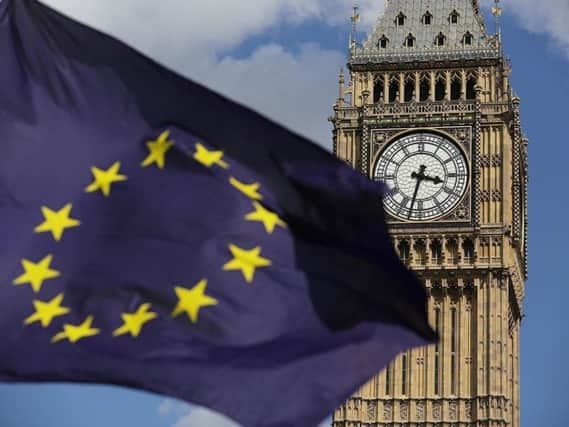The cost of EU membership


But of course there is friction and cost at most international borders and they have to be balanced against the cost of EU membership, bearing in mind that world tariffs have fallen to around three per cent.
To recap. The direct cost of our EU membership is around £9billion pa and if EU/UK tariffs were set at ten per cent, then the UK would collect £9bn pa more on imports from the EU, resulting in a £18bn pa gain, some of which could be used to reduce business taxes.
Advertisement
Hide AdAdvertisement
Hide AdAdditionally, the UK collects tariffs on goods imported from beyond the EU and the many £billions collected are sent to Brussels. Once that stops, then the cost of those goods in our shops will fall, by several percentage points over time, noting that EU tariffs on food alone average around 20 per cent.
Also the circa 90 per cent of UK companies, which don’t even export to the EU, will no longer have to comply with EU regulations, at a cost of seven per cent of GDP according to Gordon Brown in 2005. Based on today’s GDP, that would equate to over £150bn pa.
Switzerland, with its five EU borders, estimated that the cost of EU membership would outweigh the potential benefits many times over and they are not clamouring to join. If the UK was in a similar position now, then it wouldn’t be looking to join either.
Even more importantly, EU rulers have told us that the ‘era of our nation state will be over’, if we remain a member. That was far more significant to many of the 17.4m who voted to leave the EU, than friction at borders.
I travelled freely around Europe before 1972 (showing a passport at borders) and will continue to do so after Brexit.
Roger Arthur
Melrose Place, Storrington